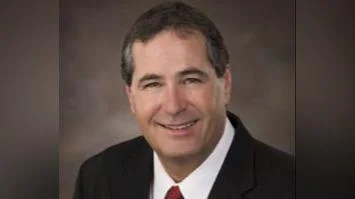Local Theater Adapts to Industry Shifts, Keeps Movies Affordable and Community Focused
Bison 6 Cinema at the Buffalo Mall has altered its business model to respond to shifting national box office patterns and pandemic era disruptions, focusing on affordable pricing, niche programming, and private rentals. These changes aim to preserve local entertainment options, sustain concession revenue, and provide flexible event space for Stutsman County residents.
Listen to Article
Click play to generate audio
%3Aquality(70)%3Afocal(1238x1058%3A1248x1068)%2Fcloudfront-us-east-1.images.arcpublishing.com%2Fshawmedia%2FMG4YKKQNQZHAZNTQ6LQSVSHL7U.jpg&w=1920&q=75)
Bison 6 Cinema, located in the Buffalo Mall, is recalibrating how it operates as the national film industry adjusts release strategies and audience behavior. Owner Cory Keim has moved the theater toward an array of tactics designed to maintain attendance and the ancillary concession revenue that keeps small cinemas viable. The story, published November 15, 2025, in the Jamestown Sun, highlights practical steps taken at the community level as major studio schedules and pandemic aftershocks reshaped the market.
Keim has attached greater emphasis to affordable ticket pricing and programming that diverges from the traditional blockbuster cycle. The theater now regularly screens faith based films and limited release titles that may not receive wide distribution in larger markets. It also stages themed showings of classic films and screenings with local tie ins to attract repeat visits from Stutsman County residents who seek cost effective entertainment near home.
Recognizing the unpredictability of major release dates and the economics of short theatrical windows, the cinema has accepted the reality of holding titles for multiple weeks when necessary. Extending runs can lower weekly per screen revenue but preserves the chance to build word of mouth and sell more concessions over time. To supplement box office receipts, Keim has expanded private rental offerings, hosting children’s parties, private events, and community gatherings that provide steady rental income and bolster concession sales during off peak times.
These adaptations reflect broader market pressures that local theaters face. Pandemic era delays and shifts in studio distribution strategies have reduced the predictability of audience flow into small venues. For theaters without the scale of multiplexes in metropolitan areas, a diversified revenue mix including events, niche programming, and accessible pricing can be the difference between closing and continued operation. For residents of Stutsman County, that means continued access to a nearby venue for family outings, community events, and special screenings.
The local economic implications extend beyond entertainment. Keeping the cinema open supports jobs, maintains foot traffic in the Buffalo Mall, and preserves a space that can host fundraisers and civic activities. While national box office patterns continue to evolve, Bison 6 Cinema’s model offers a pragmatic example of how rural and small town theaters can adjust operations to remain relevant and financially sustainable. The approach prioritizes community needs and steady revenue, positioning the cinema to weather further industry shifts while continuing to serve local audiences.


.png&w=1920&q=75)